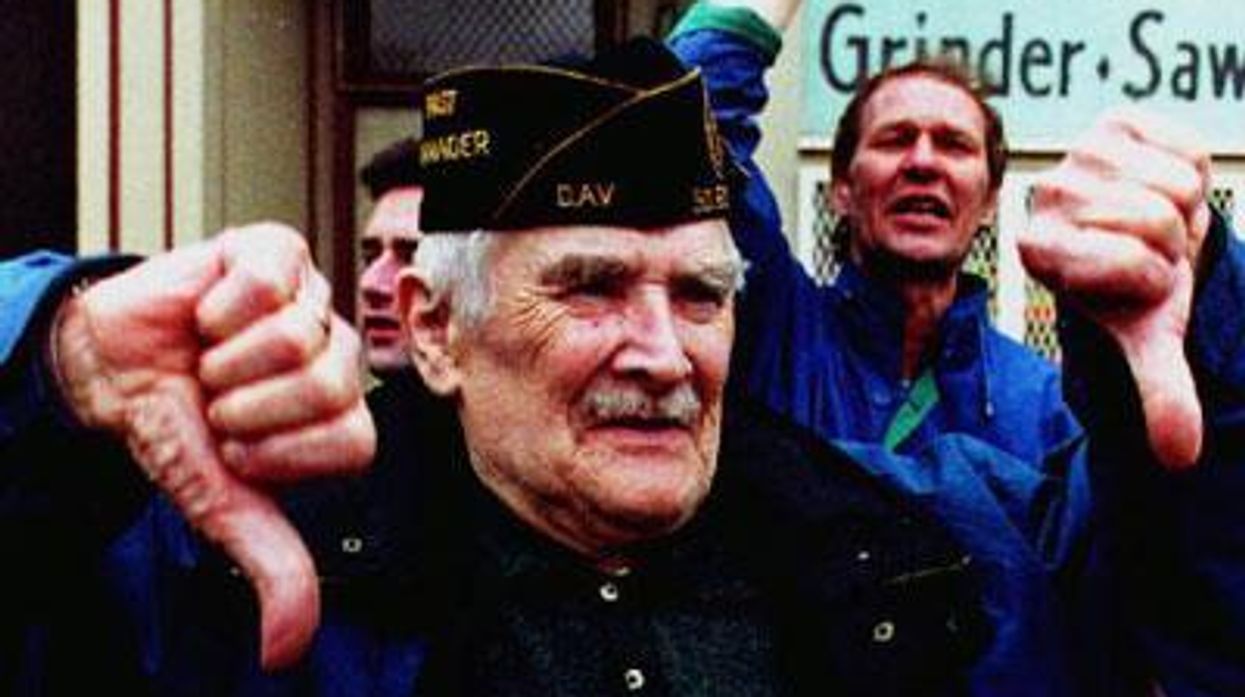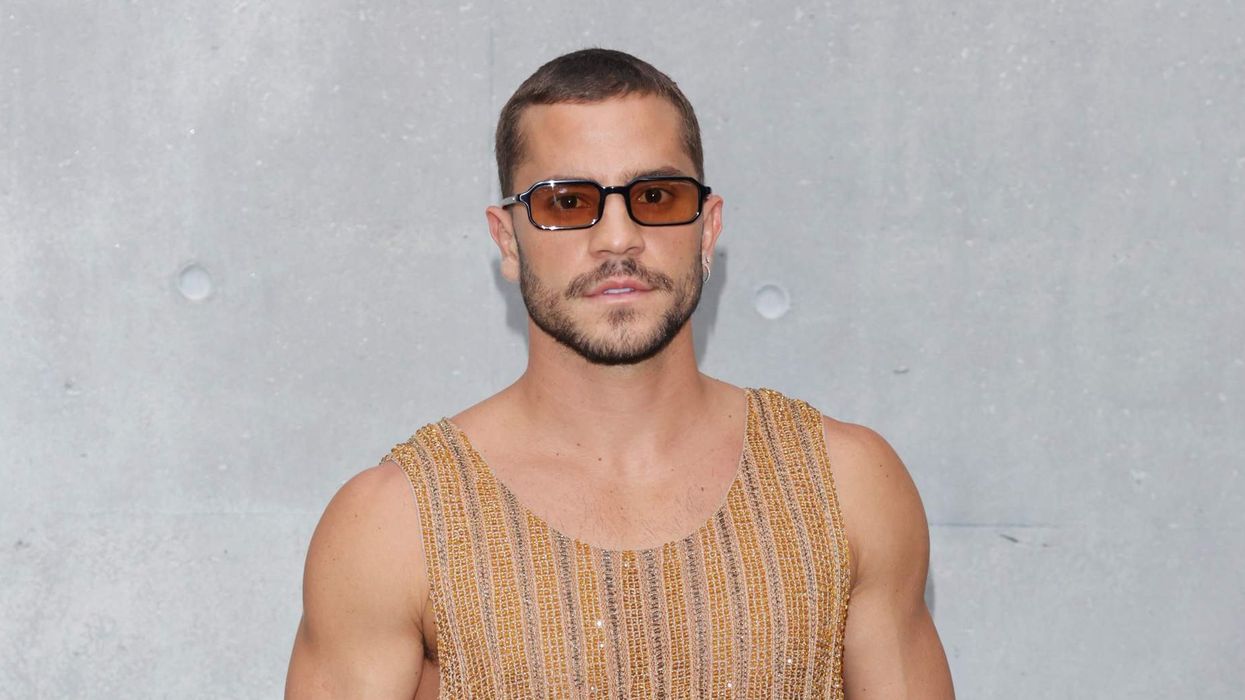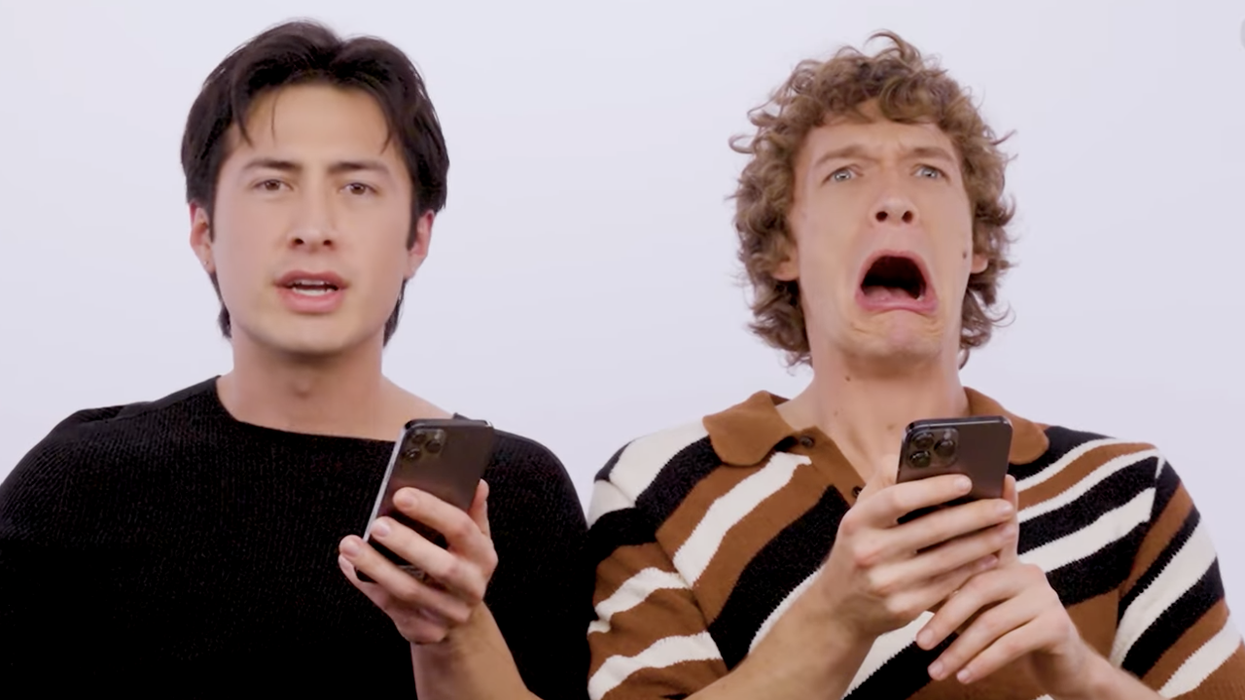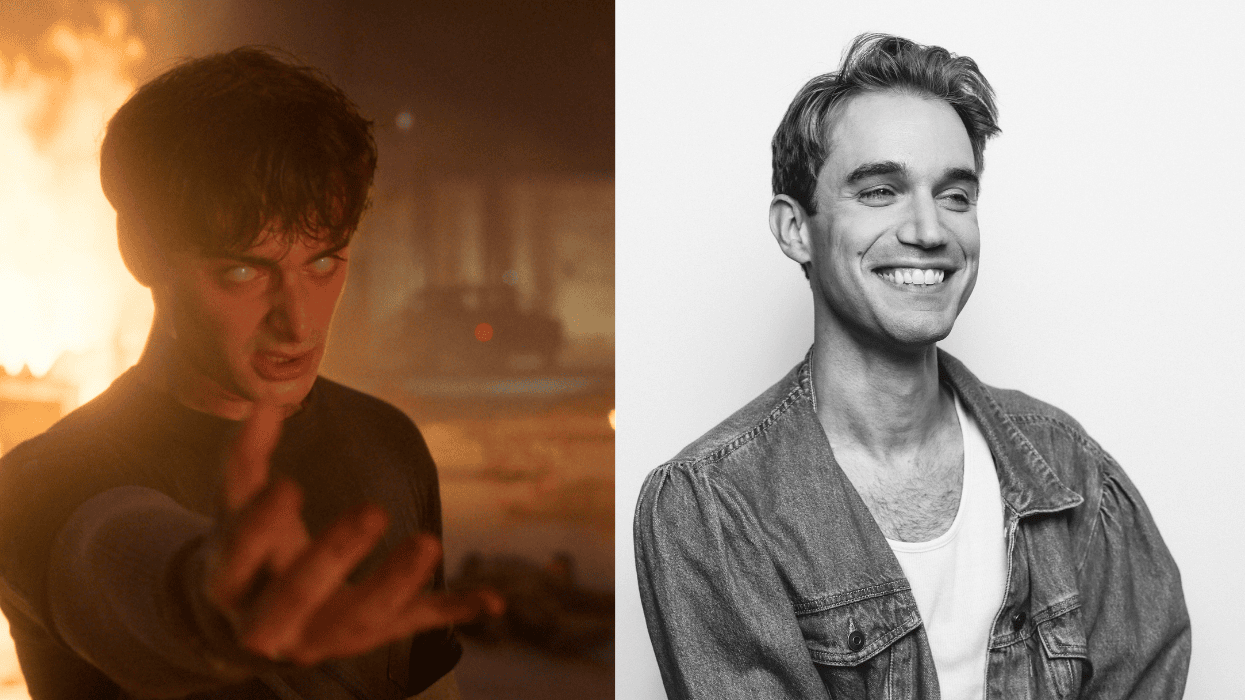Reactions to the Irish American Gay, Lesbian &Bisexual Group of Boston during its South Boston St. Patrick's Day Parade appearance in 1993. | Getty Images
I remember when the fights started.
It was the early '90s--a time marked by the LGBT community's campaigns that were pushing up against countless cultural boundaries. ACT UP was in full flower around the globe, and it was making headway in the fight against HIV/AIDS. The resulting spin-off of that hard work was a new kind of queer activism that was committed to testing the limits of all cherished institutions. We were out, organized, and empowered--in a very new way and weekly battles against institutions that excluded us were the norm.
At that time, it was not shocking in any way that an LGBT Irish organization would want to march in a St. Patrick's Day Parade. We were breaking down doors all over our culture, and the parades in Boston and New York were going to be the next to tumble...or so we thought.
We were always spoiling for a good fight back then, but did we ever think that this would be a fight that would last for more than 20 years? Taking on a parade sounds easy on the surface but what do you find when you look under the hood of the Boston St. Patrick's Day Parade and check out the lead organizers? Two institutions that were far from welcoming to our admission: a military veterans organization and the Catholic Church.
The resulting fight that has dragged on for two decades has always been a potent mix of our battles to gain admission to the military and acceptance from religion with a good old helping of homophobia. All these years later the participants show no signs of losing their ferocity. Statements made in the last few weeks against LGBT inclusion in the Parade sound exactly the same at they did when all of this kicked off. But for all of the similarities in the way this fight sounds, is this even the same battle that is was in the early '90s?
Here we are, 20 years later, and this has warmed up again thanks to an ally, the new Mayor of Boston, Martin Walsh. To his credit, Walsh has refused to participate in the Parade until the organizers drop their long-standing ban on LGBT groups. He's gone so far as work to broker a still shaky deal to allow a marching contingent of gay veterans from MassEquality, the statewide rights organization.
Twenty years ago, when this fight began, I was more of a hot-headed activist than I am today. I was ready to take to the streets at a moments notice with a sign, a T-shirt, and my Doc Martens at the slightest hint of anything homophobic. Now, I find it hard to take those who are expending so much energy and bile seriously. Both of the institutions behind the groups who assemble the Parade have changed for the better in the interceding two decades. After the Supreme Court struck down "don't ask, don't tell," it was only a very short time before gay marriages started happening at West Point. The new Rolling Stone-approved pontiff continued his softening stance toward the LGBT community, most recently by suggesting the Vatican might just be fine with civil unions for same-sex couples.
Even my sometimes-conservative Irish Catholic hometown of Holyoke, Mass.--a city that is as defined by its St. Patrick's Day Parade (second largest in the country!) as it is by anything else--is looking at making its Parade route the inclusive one by inviting an LGBT group to march this year. To hammer the point home about what a welcoming parade looks like, openly gay Mayor Alex Morse has extended invitations to Walsh and New York City Mayor Bill de Blasio to come join him, and the high school GSA will also be marching.
Very soon--probably in less than 20 years--the South Boston Allied War Veterans Council that organizes the Boston Parade will have gay and lesbian veterans as members. The members of the Catholic clergy who rail against homosexuals in the Parade will have to face up to the fact their their new boss has a very, very different way of thinking on this matter.
Ultimately, as time marches on, the face of the Parade and those who make it happen every year will change and this pitched battle will finally end.
Michael Kusek is a public relations and communications consultant. He lives in Northampton, Mass.






























